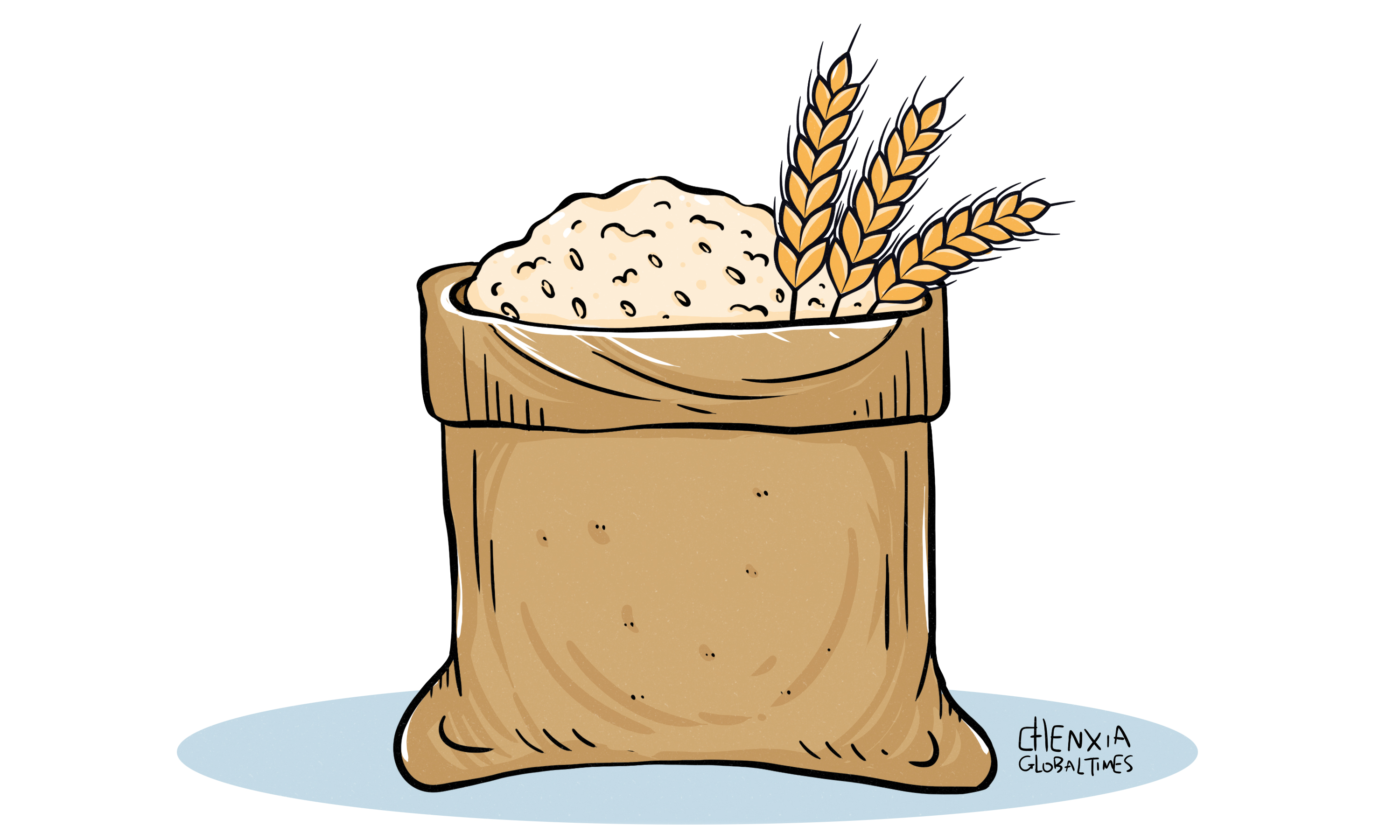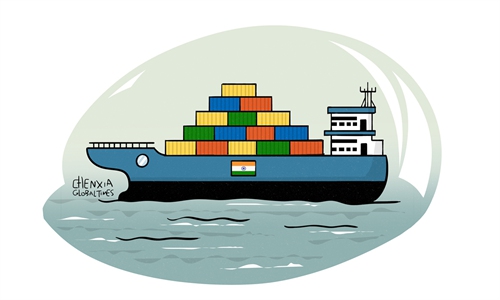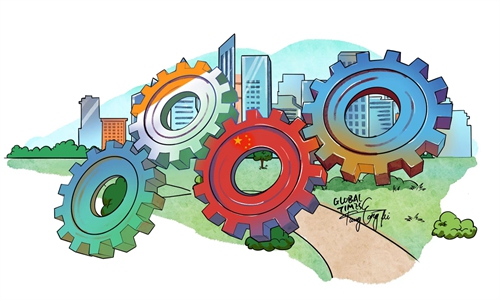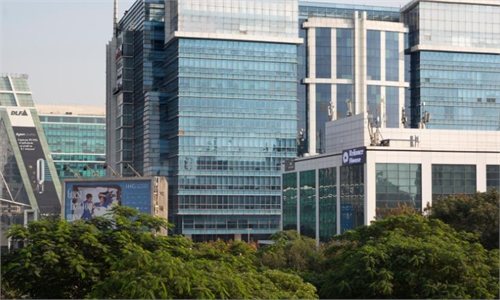
Illustration: Chen Xia/Global Times
India is working on developing the "world's largest grain storage" program, Indian news outlet Mint reported on Monday, citing two people aware of the development. The proposal comes amid rising global food prices in the wake of disruptions caused by the Russia-Ukraine conflict and the COVID-19 pandemic, the report claimed.
The disruptions in global food supply chain have increased food security concerns in many countries, including India. It is understandable that some Indian officials have taken a positive attitude toward a grain stockpiling program, which aims to ensure India's food security, but it will not be easy to achieve those goals.
There are both short-term and long-term challenges ahead for India. India's federally held cereal stocks have declined to a five-year low as extreme weather pummeled both winter-sown wheat and summer-sown rice crops, driving up retail food prices to a 22-month high, the Hindustan Times reported in October.
A prolonged heatwave in March crimped India's wheat output, prompting New Delhi to ban wheat exports without prior government approval in May as domestic supplies dwindled. In September, the government also banned the export of broken rice with an aim to increase domestic availability. India's moves in this regard have drawn criticism from the West. Last week, India lifted the ban on exports of organic non-basmati rice, including broken rice. Although the announcement is welcomed as it will increase global rice supply, this may also add difficulties for the country to develop the "world's largest grain storage" program.
We cannot be blindly optimistic, too, in the long run. India, despite having large areas of arable land, suffers from low productivity. The Global Food Policy Report 2022 has warned that climate change may push many Indians toward hunger by 2030 due to a decline in agricultural production and disruption in food supply chain, Outlook India Magazine reported in May.
While it is certainly necessary to pile up grain reserves, the main difficulty lies in how India can ensure domestic supply and food price stability, avoid hunger and poverty, ensure reasonable growth in grain exports, and maintain its export competitiveness, at the same time develop the "world's largest grain storage" program. We believe India's agricultural policies are aimed at achieving multiple goals, rather than a solitary effort to pile up grain reserves.
At the very least, India has limited room to reduce domestic grain supply and allow food prices to rise beyond a certain level, because this will put further pressure on overall inflation, which eased to a three-month low of 6.77 percent in October but remained above central bank's tolerance limit.
If India wants to pile up grain reserves, the country has no choice but to achieve an increase of grain production. Seed, irrigation, and fertilizers need to be vastly improved, helping farmers increase yields. Advances in machinery, artificial intelligence, satellite imagery, and other emerging technologies could also improve the efficiency of inputs and further increase yields. In this regard, China and India have broad space for cooperation in the fields of agricultural infrastructure, finance, and agricultural technology.
China achieves one-fourth of the world's total grain production and feeds one-fifth of the global population with less than nine percent of the land on earth. In recent years, China has actively promoted cooperation in agricultural science and technology innovation.
China and India, two nations with a profound culture and long history of farming, are both a large agricultural producer, consumer and trader. The two countries should strengthen agricultural cooperation under bilateral or multilateral frameworks such as BRICS.
In recent years, BRICS countries have made continuous efforts to establish a long-term and stable cooperation mechanism focusing on food security. Agricultural cooperation enjoys potential because they are mutually beneficial.
The author is a reporter with the Global Times. bizopinion@globaltimes.com.cn



